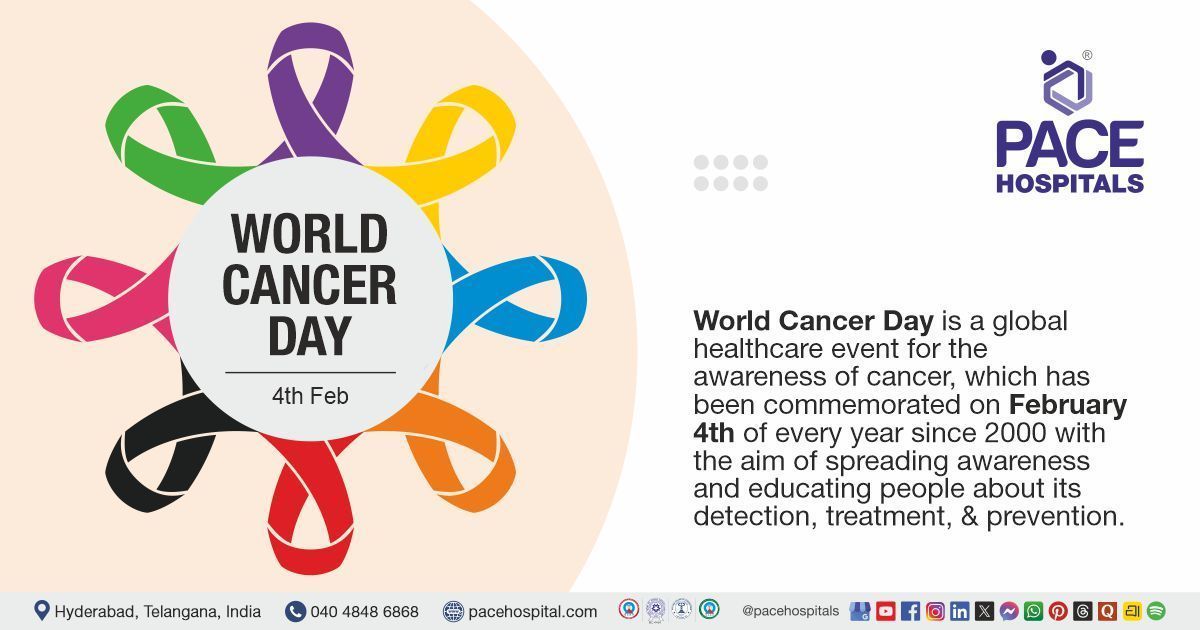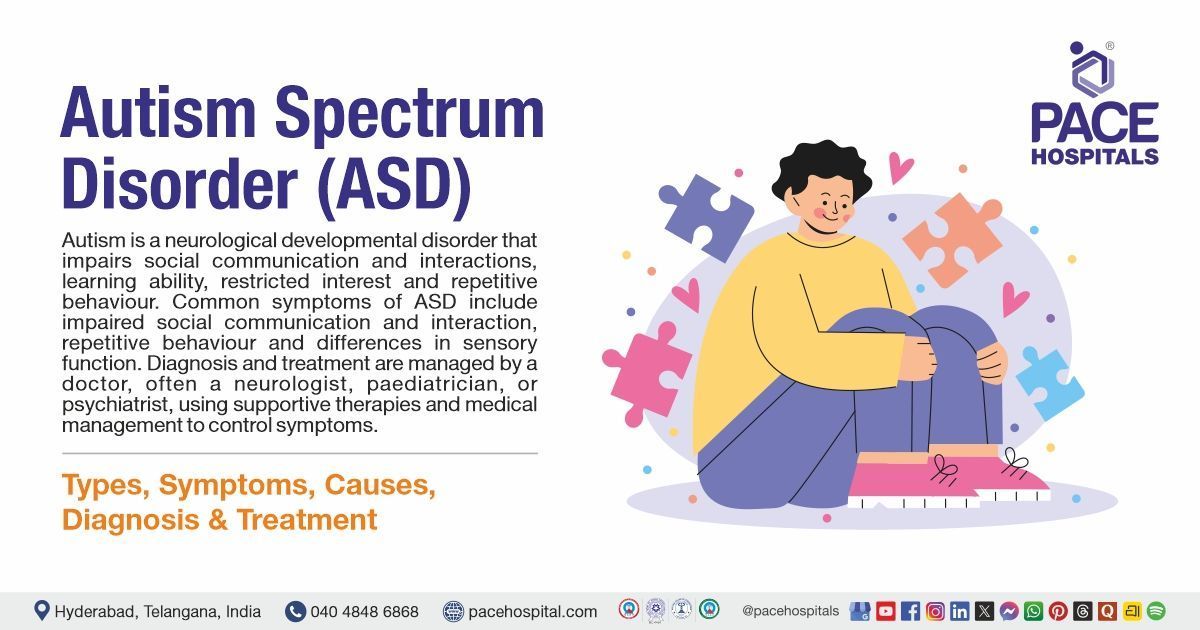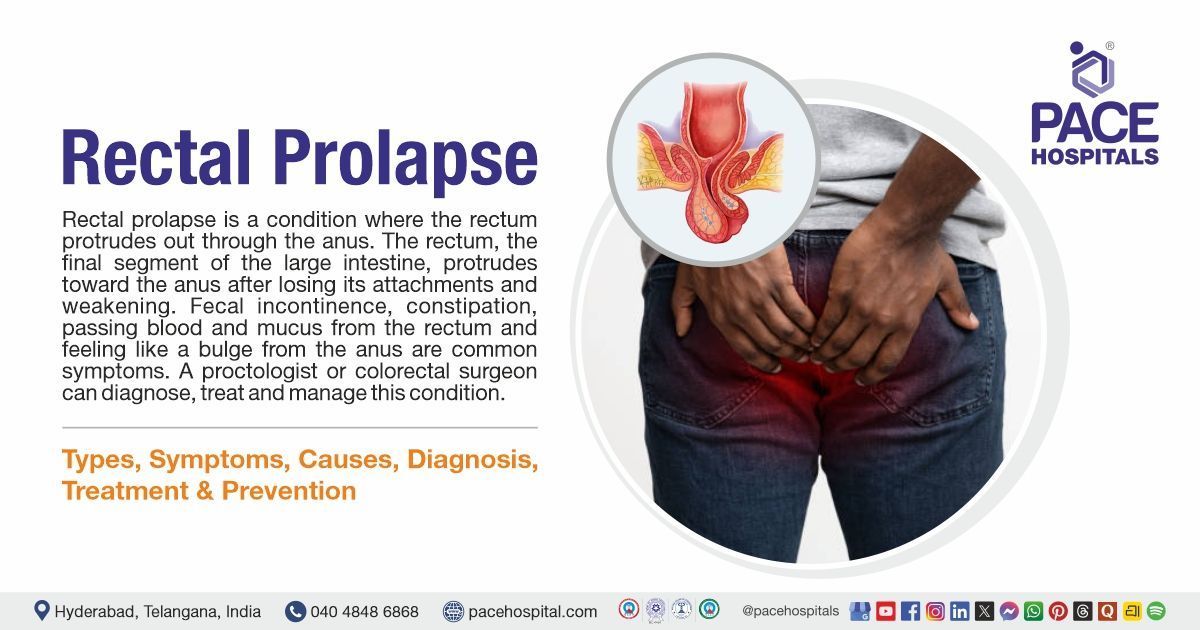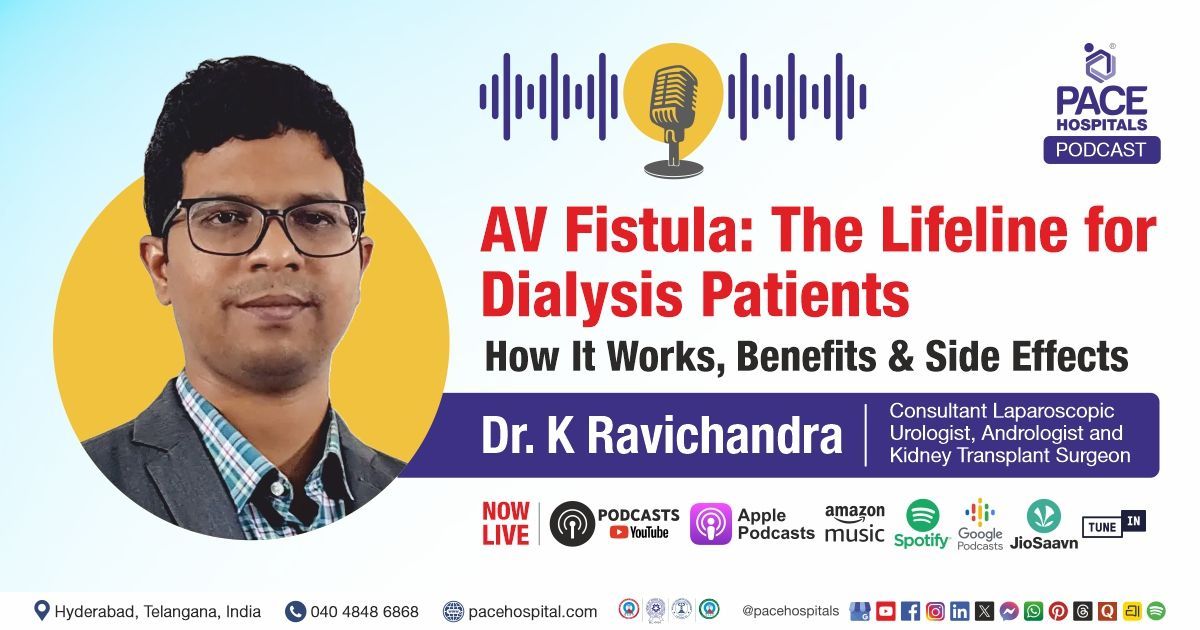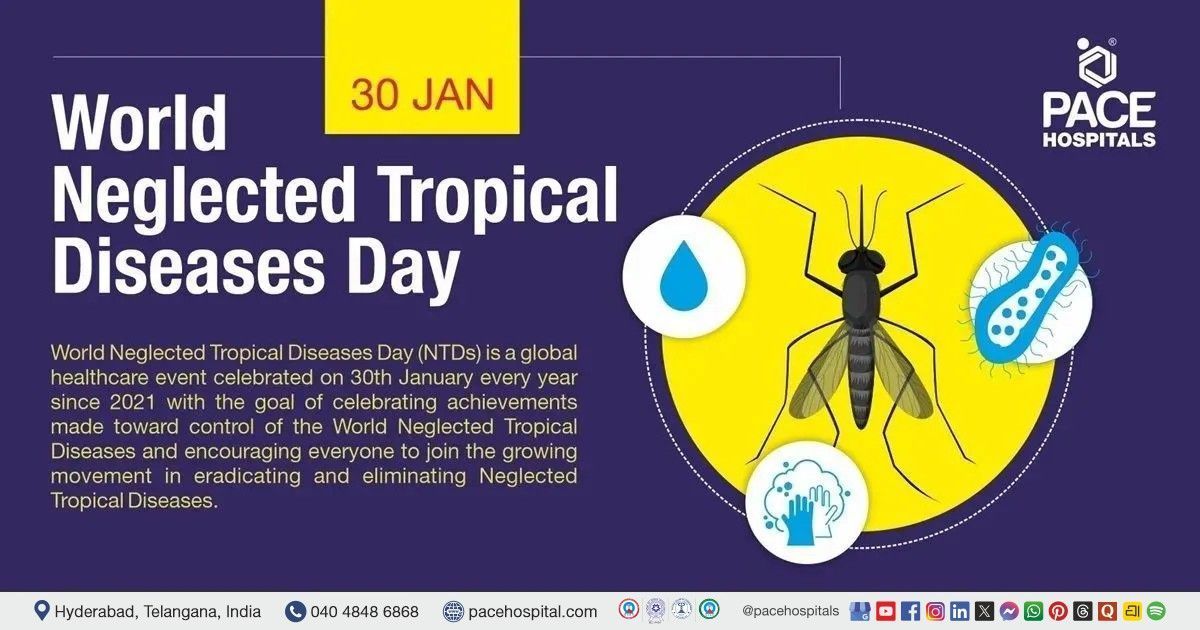Interesting Facts About Malaria You Should Know
PACE Hospitals
Written by: Editorial Team
Medically reviewed by: Dr. Mounika Jetti - General Physician and Diabetologist
Overview
Malaria is one of the world's oldest and most persistent infectious diseases, caused by Plasmodium parasites and spread through the bites of infected Anopheles mosquitoes. Malaria continues to harm millions of people around the world, despite the fact that it is both preventable and curable.
At PACE Hospitals in Hyderabad, our internal medicine, infectious disease, and critical care specialists use evidence-based care, advanced laboratory testing, and public awareness campaigns to deliver complete malaria diagnosis, treatment, and prevention.
This article uncovers interesting scientific, historical, and medical facts about malaria, alongside expert insights from PACE Hospitals on its management and prevention.
Malaria Is Caused by a Parasite — Not a Virus or Bacteria
Many people assume malaria is viral or bacterial, but it’s actually caused by a protozoan parasite of the genus Plasmodium. There are five main species known to infect humans:
- Plasmodium falciparum – the most dangerous and deadly form
- P. vivax – causes relapsing infections
- P. malariae – leads to chronic infections
- P. ovale – less common but recurrent
- P. knowlesi – transmitted from monkeys to humans (zoonotic malaria)
The Life Cycle of Malaria Is Fascinatingly Complex
The malaria parasite has two hosts – humans and mosquitoes.
- When an infected mosquito bites someone, sporozoites enter their bloodstream and travel to the liver.
- There, they mature into merozoites, which invade red blood cells, multiply, and rupture them, releasing more parasites and toxins — causing cycles of fever and chills.
- Some parasites develop into gametocytes, which are taken up by another mosquito, continuing the cycle.
This dual-host life cycle makes malaria one of the most biologically sophisticated infections known.
Malaria Has Shaped Human Evolution
Malaria has existed for thousands of years and has influenced human genetics. People from malaria-endemic regions have developed certain genetic adaptations, such as:
- Sickle cell trait – carriers are more resistant to severe malaria.
- Thalassemia and G6PD deficiency also confer partial protection.
These genetic traits highlight how malaria has literally evolved alongside humans.
Malaria Once Affected Nearly Every Part of the World
Although now mostly found in Africa, South Asia, and parts of South America, malaria was once common even in Europe and North America. The term “malaria” comes from the Italian “mala aria” —meaning "bad air"—because people believed swamp air caused the disease before the mosquito connection was discovered.
The First Malaria Treatment Came from Tree Bark
In the 17th century, the discovery of quinine, derived from Cinchona tree bark, transformed malaria treatment. Modern derivatives such as chloroquine, mefloquine, and artemisinin have since been produced.
PACE Hospitals follows WHO-approved artemisinin-based combination therapy (ACT) for malaria treatment, ensuring the highest efficacy and minimal resistance.
Diagnosis Has Become Rapid and Accurate
Earlier, malaria was diagnosed only through microscopic blood smears, but now, rapid diagnostic tests (RDTs) can detect malaria antigens within minutes.
At PACE Hospitals, advanced microscopy, antigen-based tests, and PCR are available for precise identification of Plasmodium species, especially in complex or mixed infections.
The Classic Malaria Symptoms Follow a Unique Pattern
Malaria fever typically occurs in cyclic episodes — every 48 to 72 hours, corresponding to red blood cell rupture cycles. Common symptoms include:
- High fever with chills and sweating
- Headache and muscle pain
- Nausea and vomiting
- Fatigue and dizziness
Malaria, particularly P. falciparum, can cause organ failure, cerebral malaria, or death if left untreated.
Malaria Can Be Asymptomatic
Following repeated exposure, some persons, especially those living in endemic areas, develop partial immunity. They may carry the parasite without exhibiting any symptoms, unknowingly contributing to disease transmission.
PACE Hospitals uses screening and community education programs to identify asymptomatic carriers during seasonal outbreaks.
Drug Resistance Is a Major Global Threat
Plasmodium falciparum has evolved resistance to multiple drugs, including chloroquine and sulfadoxine-pyrimethamine. This challenge has resulted in the development of artemisinin-based combination therapy (ACT) as the global standard of care.
PACE Hospitals continually updates its treatment protocols based on the National Vector Borne Disease Control Programme (NVBDCP) and WHO guidelines.
Malaria Is Preventable with Simple Precautions
Despite its seriousness, malaria prevention is straightforward:
- Use insecticide-treated mosquito nets.
- Use DEET-based repellents.
- Eliminate stagnant water around homes.
- Wear protective clothing in mosquito-prone areas.
PACE Hospitals emphasizes preventive education, especially before monsoon seasons, when mosquito breeding peaks.
The World’s First Malaria Vaccine Is a Scientific Breakthrough
The RTS, S/AS01 vaccine (Mosquirix) — developed by GlaxoSmithKline — is the first approved malaria vaccine. It offers partial protection, especially for children in high-risk areas.
Ongoing research aims to develop second-generation vaccines with higher efficacy and broader coverage.
Malaria Still Affects India Significantly
India bears a large amount of Southeast Asia's malaria burden, although cases have declined dramatically in recent years.
PACE Hospitals in Hyderabad support the national goal of eradicating malaria by 2030 through early detection, treatment, and education campaigns.
Treatment at PACE Hospitals Hyderabad
PACE Hospitals provides:
- Comprehensive testing (RDT, smear, and PCR)
- 24/7 Emergency Management: Immediate care available around the clock for severe malaria infections.
- Intensive Therapy: Specialized treatment for cerebral and other complicated cases of malaria.
- Personalized Follow-up: Tailored monitoring and care plans to avoid relapse, particularly for Plasmodium vivax infections.
Malaria Treatment Cost at PACE Hospitals
The cost of malaria treatment at PACE Hospitals, Hyderabad, ranges between ₹3,000 to ₹15,000 (USD 35 – 180),
Depending on the severity, type of infection, hospitalisation needs, and medication requirements.
PACE Hospitals offers affordable diagnostic and treatment packages with cashless insurance and online consultations.
Malaria Elimination Is Possible
Malaria is closer to being eradicated than ever before because to integrated vector management, vaccine research, and increased healthcare access.
PACE Hospitals continues to assist India's malaria-free goal through community education, preventative medicine, and research collaborations.
Frequently Asked Questions (FAQs) on Malaria Facts
What causes malaria?
Plasmodium parasites cause malaria, which is spread to humans through the bites of infected Anopheles mosquitoes.
What are the symptoms of malaria?
Fever, chills, sweating, headache, fatigue, nausea, and muscle pain are common symptoms. Severe cases may cause organ failure or coma.
What are the treatment options for malaria?
Treatment depends on the Plasmodium species and the severity of the infection. At PACE Hospitals, artemisinin-based combination therapy (ACT) is used as per WHO guidelines.
How can malaria be prevented?
Use mosquito nets, repellents, and eliminate stagnant water. Preventive antimalarial medication may be prescribed for travellers.
What is the cost of malaria treatment in Hyderabad?
Treatment at PACE Hospitals costs ₹3,000–₹15,000 (USD 35–180), depending on the infection's severity and hospitalization needs.
Can malaria recur after treatment?
Yes. Especially with P. vivax infections, relapses may occur if dormant liver stages are not eliminated. Follow-up therapy prevents recurrence.
How is malaria diagnosed?
Through blood tests such as peripheral smear, rapid antigen test, or PCR — available at PACE Hospitals for accurate species detection.
Is malaria contagious?
No. Malaria cannot spread from person to person directly. It requires transmission via mosquito bites or, rarely, blood transfusion.
Is there a vaccine for malaria?
Yes. The RTS, S (Mosquirix) vaccine provides partial protection and is currently deployed in high-risk regions for children.
Why choose PACE Hospitals for malaria treatment in Hyderabad?
PACE Hospitals offers expert infectious disease specialists, 24×7 emergency care, rapid diagnosis, and affordable treatment plans for all types of malaria.
Share on
Request an appointment
Fill in the appointment form or call us instantly to book a confirmed appointment with our super specialist at 04048486868



